
Beijing’s Pursuit of Increased Financial Control in China Is Seen as Ineffectual, Leading to Economic Uncertainty: Expert Analysis
Beijing, China – November 5th – As the top leadership of China convened for the nation’s major financial conference, the Chinese Communist Party (CCP) sent a signal indicating its intent to assert more control over the nation’s $61 trillion financial sector. While this gathering underscored the challenges faced by CCP leader Xi Jinping in dealing with China’s ailing economy, experts suggest it failed to provide effective solutions to the nation’s financial woes.
The National Financial Work Conference, a biennial event of significant importance, was held in Beijing from October 30 to 31. This timing coincided with the Chinese regime’s endeavors to address considerable municipal debt and an ongoing housing crisis, both of which have been identified as factors that could exacerbate the nation’s economic problems.
CCTV, the state broadcaster, reported that the conference was convened by Mr. Xi himself. However, this year’s gathering was delayed by one year due to the constraints imposed by the CCP as a result of the COVID-19 pandemic.
Since the inaugural conference in 1997, these gatherings have played a crucial role in setting the direction for the nation’s financial policies. Business leaders, investors, financial experts, and political analysts closely monitor these meetings, seeking insights into Beijing’s strategies for revitalizing the nation’s faltering economy.
The statement released at the end of the conference emphasized the CCP’s leadership in financial matters, with a commitment to managing financial risks and developing a lasting solution for local government debts. However, from an outsider’s perspective, the event did not yield any concrete decisions.
Li Hengqing, an economist based in Washington, offered a bleak assessment: “There was nothing to observe at the meeting.” He views Xi’s actions as centered on the consolidation of power through institutional reforms, which he characterizes as a “dead end.”
Institutional Reform This year’s conference coincides with Mr. Xi’s major restructuring of the financial system, introduced earlier this year. This restructuring saw the establishment of the Central Financial Commission, a Party organ tasked with formulating policies and overseeing the financial sector. This commission supplements the role once held by the Financial Stability and Development Committee, a government institution under the State Council. Mr. Xi unveiled this overhaul during the annual gathering of China’s rubber-stamp legislature in March, an event that also marked his exceptional third term as China’s top leader, breaking with established norms.
Another significant announcement during the conference was the revival of a financial watchdog, the Central Financial Work Commission. This commission was initially established in 1997 but disbanded in 2003.
However, the specific details related to both commissions, including their composition and leadership, have not been disclosed to the public. According to China analyst Wang He, this lack of transparency is a common practice of the CCP. He contends that concealing key Party organ information is part of the CCP’s broader efforts to exert control over society.
Even though Mr. Xi is arguably the most influential Chinese leader in decades, Wang He notes that during his early years in office, he had limited influence within the financial sector. According to Wang He, this was a result of the complex dynamics between prominent business figures in China and individuals at the highest levels of the CCP.
In communist China, “not everyone can be a player in the financial market,” he asserted, emphasizing that market regulations tend to favor Party elites.
The stock market “flash crash” in 2015 marked the beginning of Mr. Xi’s efforts to rein in the financial sector, according to Wang He. Since then, a series of prominent business magnates with political connections have been targeted by Beijing’s regulators. A recent example is Hui Ka Yan, founder of the real estate giant Evergrande, who is currently under investigation by authorities for alleged criminal activities. Mr. Hui is known for his close ties to Zeng Qinghong, a former vice-chairman and member of a political faction loyal to the late CCP leader Jiang Zemin.
Furthermore, Evergrande is now the world’s most heavily indebted housing developer, with over $300 billion in liabilities. Economists and regulators are apprehensive that if Evergrande were to collapse, it would not only impact its lenders and suppliers but send shockwaves throughout China’s financial sector, potentially causing social unrest.
“China’s financial industry is already in a mess,” Wang He remarked. However, given the intertwining of politics with business, there are no easy solutions. To address the financial issues at their core, Mr. Xi might have to clamp down on all Party elites who control the majority of China’s resources and those who support prominent business figures, Wang He explained. Pursuing such a path would effectively mean dissolving the CCP itself, an outcome he considers highly unlikely.
Strengthening Party Control
Instead of embarking on the path of dissolving the CCP, Mr. Xi has chosen to preserve it by strengthening its grip on the financial sector. In addition to the crackdown on business figures, Mr. Xi and his top anti-corruption agency have shifted their focus to the vast financial system. In 2021, the Central Commission for Discipline Inspection dedicated two months to inspect major financial institutions, including the central bank and securities and insurance regulators. This year, the discipline campaign has intensified, with the Party’s watchdog pledging a “resolute” crackdown on corruption within the nation’s financial sector.
However, Mr. Xi faces significant challenges. “The most pressing challenge is finding officials who are both politically reliable and capable of managing the [financial] industry,” Wang He emphasized. While Mr. Xi has placed loyalists in the top decision-making bodies of the regime, most of them, according to Wang He, have limited financial experience.
Wang He speculates that He Lifeng could assume a leadership role within the financial watchdog, as Mr. Xi entrusted him with concluding the pivotal financial conference this week. He Lifeng, a close confidant of Mr. Xi, became vice-premier in March. Recent state media reports revealed that he replaced Liu He, a Harvard-trained economist, as the director of the office of the Central Finance and Economic Affairs Commission, which oversees the nation’s economy.
‘A Dead End’
Analysts express doubts about the new economic czar’s ability to reverse the decline of the world’s second-largest economy. Li Hengqing cited the limited success of policies introduced by Mr. He’s predecessor, such as the “supply-side” reform aimed at deleveraging the economy and mitigating industrial overcapacity. According to Li Hengqing, “These policies were based on a market economy, but they didn’t work … as the Party’s power continued to expand.”
During the recent financial conference, Mr. Xi acknowledged “many hidden risks” within the economic and financial sectors and called for an expanded role for the CCP. A summary of the meeting published by CCTV quoted Mr. Xi as stating, “We must strengthen the centralized and unified leadership of the Party’s Central Committee in financial work and improve the mechanism of the Party’s leadership.”
Li Hengqing expresses concerns that China may regress to an era reminiscent of Mao Zedong’s rule, during which the CCP exercised control over essentials like food, employment, and all aspects of life. He believes that such a focus on comprehensive Party control could amount to a return to a planned economy, a system that was proven unsustainable by the collapse of the Soviet Union.
Nevertheless, Mr. Xi continues to advocate for economic control through top-down, centralized planning. His priority is to prevent the regime from suffering a Soviet-style collapse. “There is a fear that the regime may collapse at any time,” Li Hengqing suggested. “By emphasizing the Party’s control, he believes he can address his governing crisis temporarily.”
However, this renewed emphasis on communist ideology and CCP control casts a shadow over China’s economic prospects. The nation’s total debt has soared to over 280 percent of its GDP, according to data from a state-backed think tank. This immense debt load poses a threat to economic growth and social stability, especially as the youth unemployment rate reaches record highs. Li Hengqing believes that the debt bubble could burst at any time.
In the face of a sluggish economy and escalating debts, Mr. Xi is committed to addressing the economic crisis through political dictatorship, according to Li Hengqing. However, he asserts that such an approach is “a dead end.”

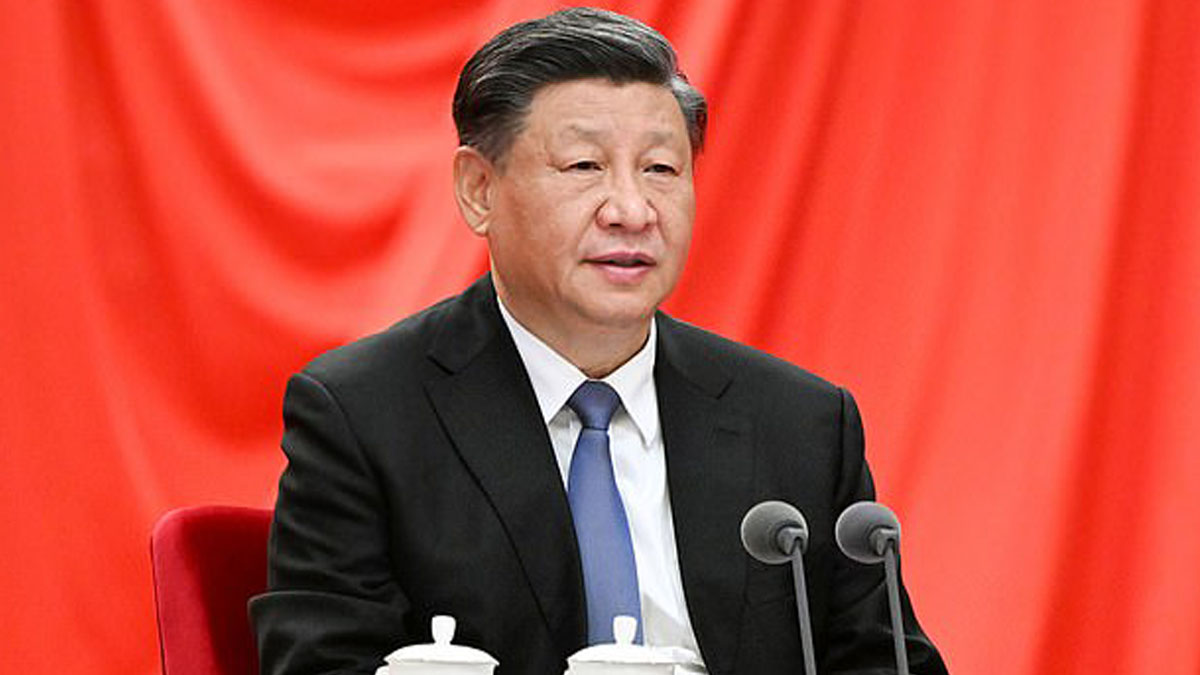
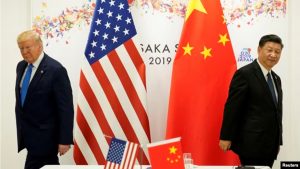

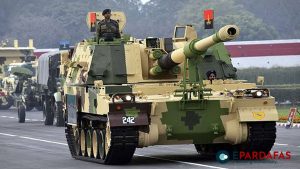
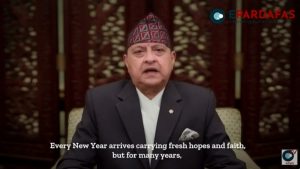

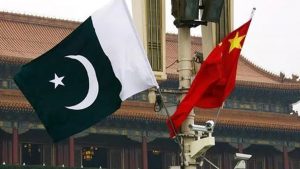



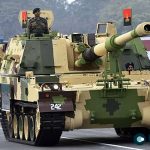

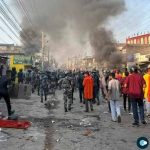
Comments